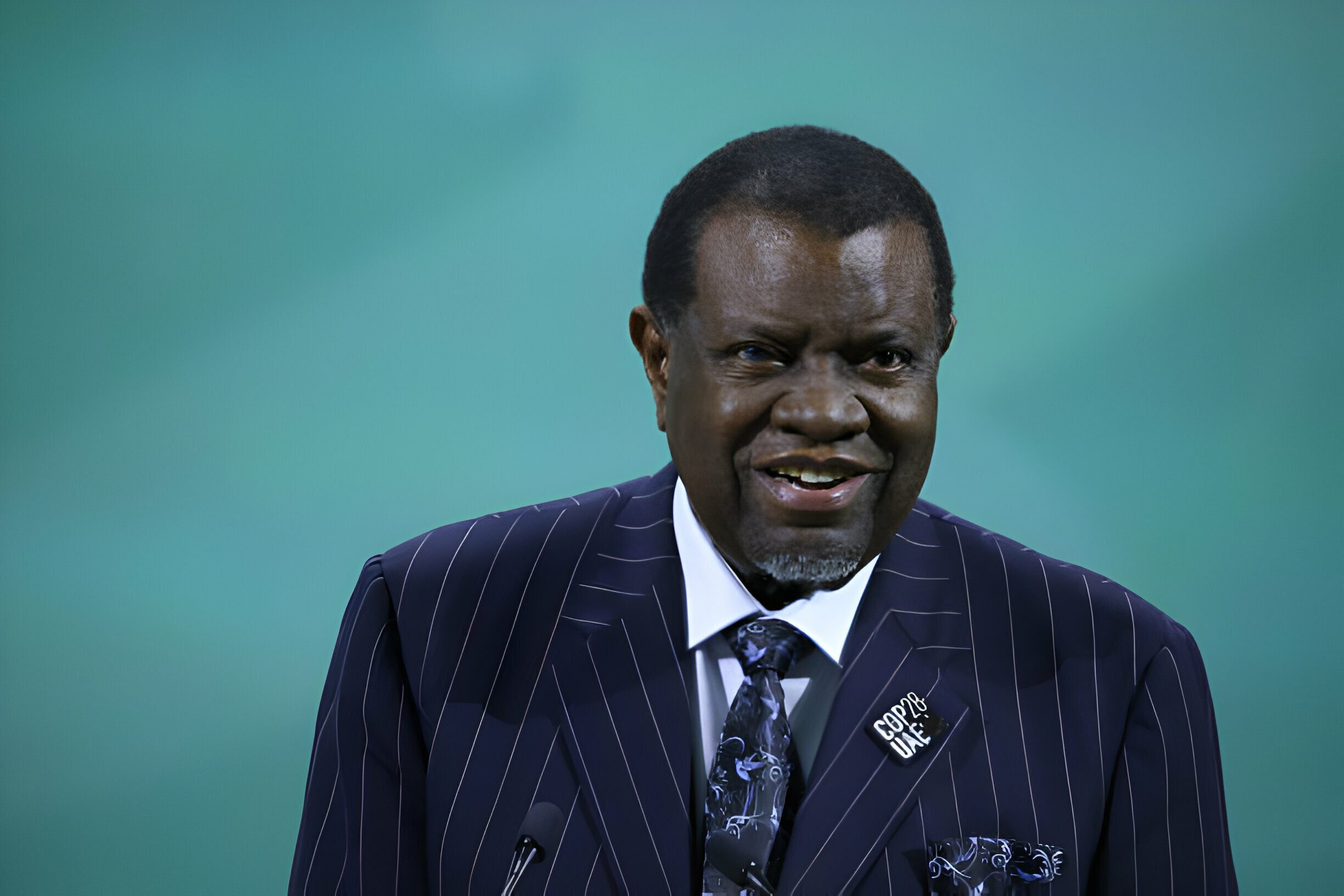In the early hours of Sunday, Hage Geingob, the President of Namibia, passed away at the age of 82 in a hospital in Windhoek, as announced by the office of the presidency. Serving his second term, President Geingob disclosed last month that he was undergoing cancer treatment.
The presidency’s announcement, shared on X (previously known as Twitter) and endorsed by acting President Nangolo Mbumba, expressed profound sorrow over the loss. “
It is with utmost sadness and regret that I inform you that our beloved Dr. Hage G. Geingob, the President of the Republic of Namibia has passed on today
“, the statement conveyed, noting that his wife, Madame Monica Geingos, and his children were by his side during his final moments.
A health check-up conducted in January had detected cancerous cells, leading to the disclosure from Geingob’s office.
Hage Geingob, first elected in 2014, had the distinction of being Namibia’s longest-serving Prime Minister before becoming its third President. His health issues were not new; in 2013, he had brain surgery, and the previous year saw him undergoing an aortic operation in South Africa.
Until his passing, President Geingob was under medical care at Lady Pohamba Hospital in Windhoek. Acting President Mbumba described Geingob as “
a distinguished servant of the people, a liberation struggle icon, the chief architect of our constitution, and the pillar of the Namibian house
.” He urged the nation to stay calm as the government handles the necessary state arrangements and protocols, with the Cabinet set to convene immediately to discuss these arrangements.
Born in 1941 in a northern Namibian village, Geingob was a trailblazer as the first President from outside the Ovambo ethnic group, which constitutes a significant portion of the population. From his early education years, he was actively involved in the resistance against the apartheid regime of South Africa, which then governed Namibia. This activism eventually led him into exile, spending substantial time in Botswana and the United States, moving from the former to the latter in 1964.
As Namibia approaches its presidential and national assembly elections later this year, the nation reflects on the legacy of a leader whose life was interwoven with its struggle for independence and its journey towards building a sovereign state.

















